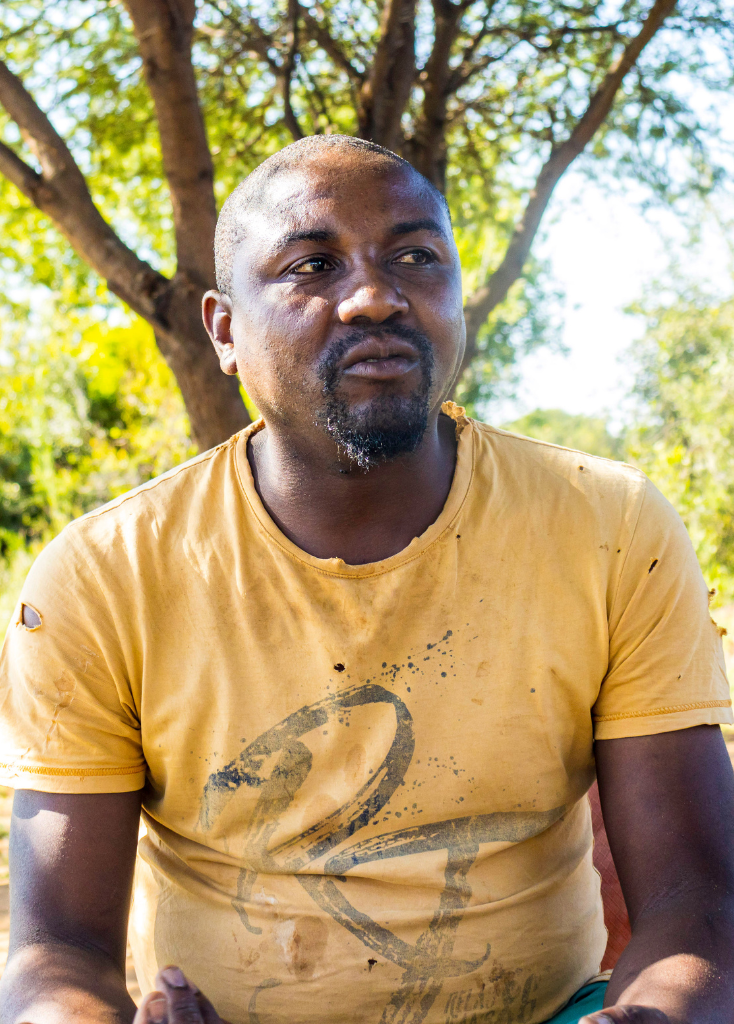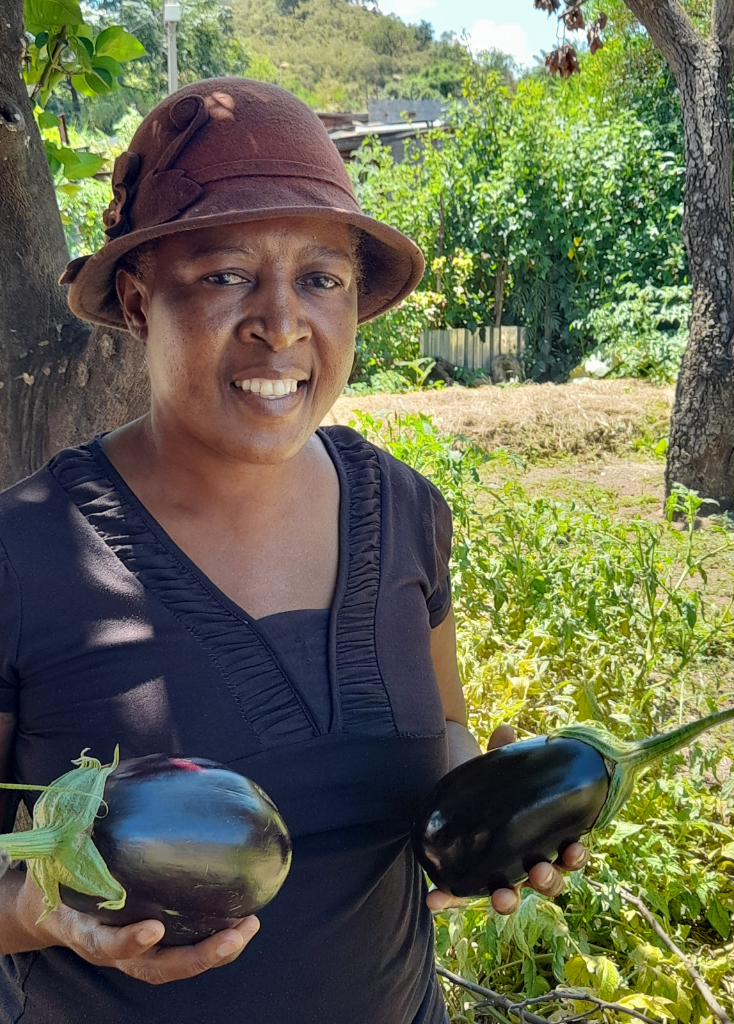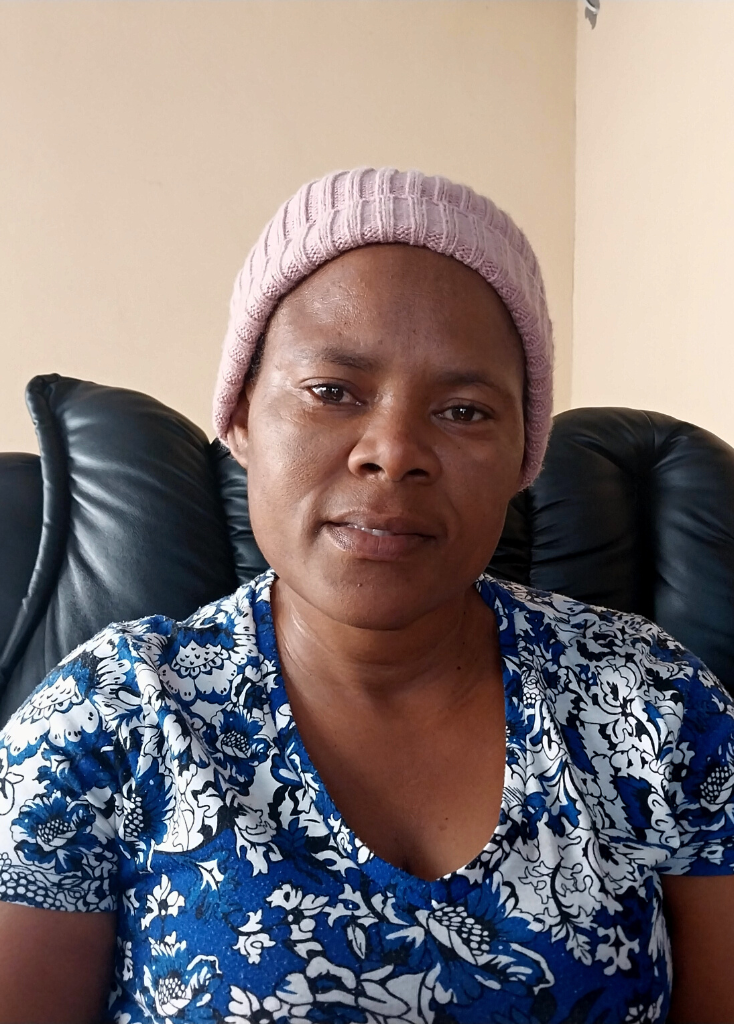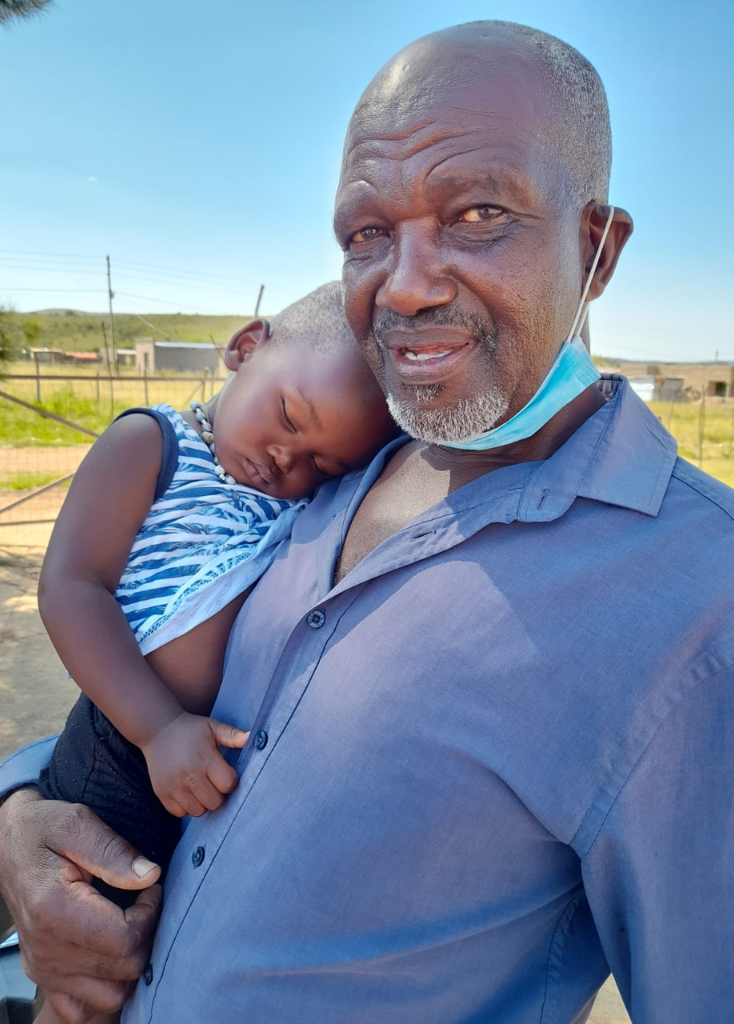
BBL PARTICIPANT: Samuel Mahlahlane; Ntsanzabela, Limpopo
In a Nutshell
Through his participation in SocioTech’s Broad-Based Livelihoods (BBL) strategies to stimulate personal economic activity, Samuel Mahlahlane from Ntsanzabela, Limpopo has acquired agricultural skills and applied this knowledge to creating a successful farming business. He is enjoying the ways in which working his land has improved quality of life for his children.
He says…
This land was originally allocated to my father by the chief but he wasn’t using it, so in 2021 I thought I would give farming a try. At that time, I had a tuck shop, but it wasn’t making enough money to support my family. I have kept the tuck shop but added farming to my activities. So far, it is going really well.
My wife and I both did the MyFood and the Business Builders training with Mr Damba. He has continued to mentor us so when there is a question or a problem, I know I can call him for advice.
It feels good to be working the land. This way of working is part of our heritage. Our ancestors knew this soil and this water. It is important not to leave behind that connection with those who came before us. I tell my children that they must know where they come from in order to know where they are going.
Whenever my kids come here, they want sugarcane and they like to pull carrots straight out of the ground and eat them right there in the field. I like the idea of being a family business. My wife, Lerato already makes and sells chakalaka made from the chilies I grow.
In addition to the chilies, sugar cane and carrots, this field of mine also has mielies, mabele (sorghum), butternuts, carrots, sweet potatoes, spinach, China morogo and watermelon. People tell me that these sweet potatoes of mine are the best that they have ever tasted. They are so full of flavour that sometimes people just eat them raw, like an apple.
I still have vacant land that I would like to plant on, but the problem is watering. My land starts at the river’s edge so it should be simple. I know I am lucky, and that there are other people who have no water. My problem is that the pump I use to get the water from the river to the field is old and keeps breaking down. The further away from the river I plant, the more of a problem this becomes.
"They are so full of flavour that sometimes people just eat them raw, like an apple."
If I can get a reliable pump, I want to start growing garlic – at the moment people in this area who want garlic have to go all the way to Marble Hall to buy. That costs a lot of money in transport. Also, we know that garlic that comes straight from the ground tastes better than garlic that is old and dried up.
Mr Damba tells me that it is important to look for gaps in the market and I think locally grown garlic is definitely a gap. Imagine if we could add to the chakalaka my wife already makes and sells. If we had lots of garlic, she could experiment with other sauces too.
At the moment I supply vegetables to tuck shops and other small shops close to where we are, but next, I want to increase the amount of land I have under-cultivation. I would like to start supplying supermarkets. But being able to do that will depend on the pump situation being solved.
Who knows what the future will bring. I like the idea of a family business with my children working alongside me on the farm, but my kids are still young; 12, 3 and 1-year-old, so I don’t know if they will become farmers.
What I do know is that they appreciate the taste of fresh vegetables – maybe too much. They don’t like vegetables from the shop anymore. They say that they only want fresh from daddy’s farm.










